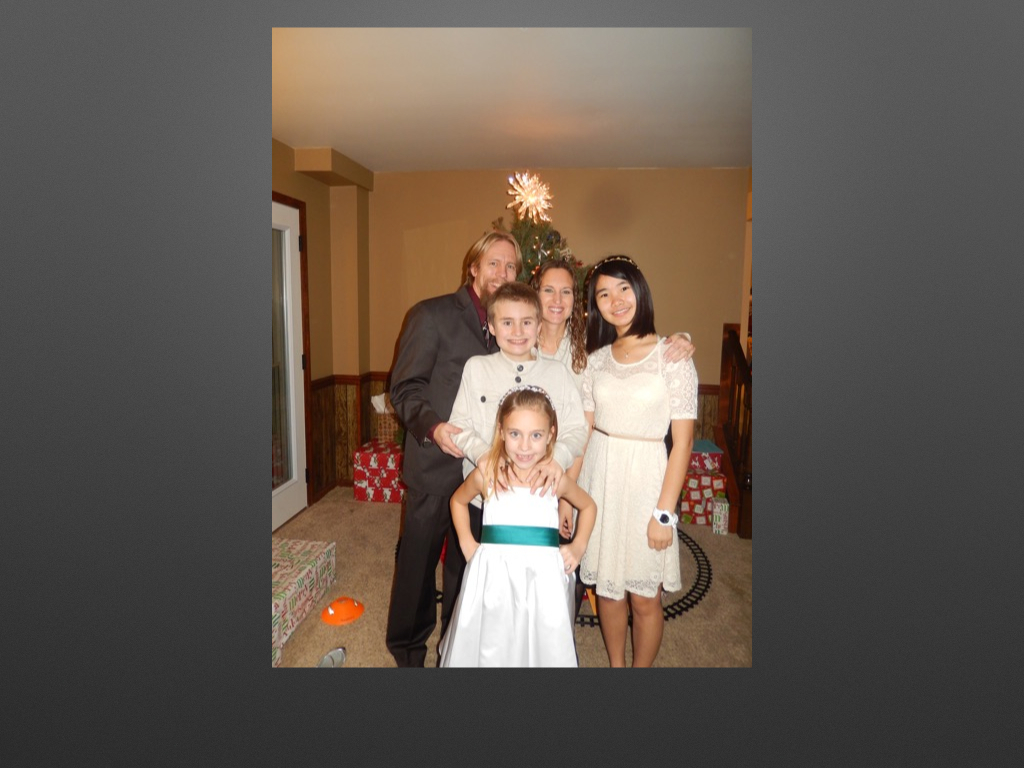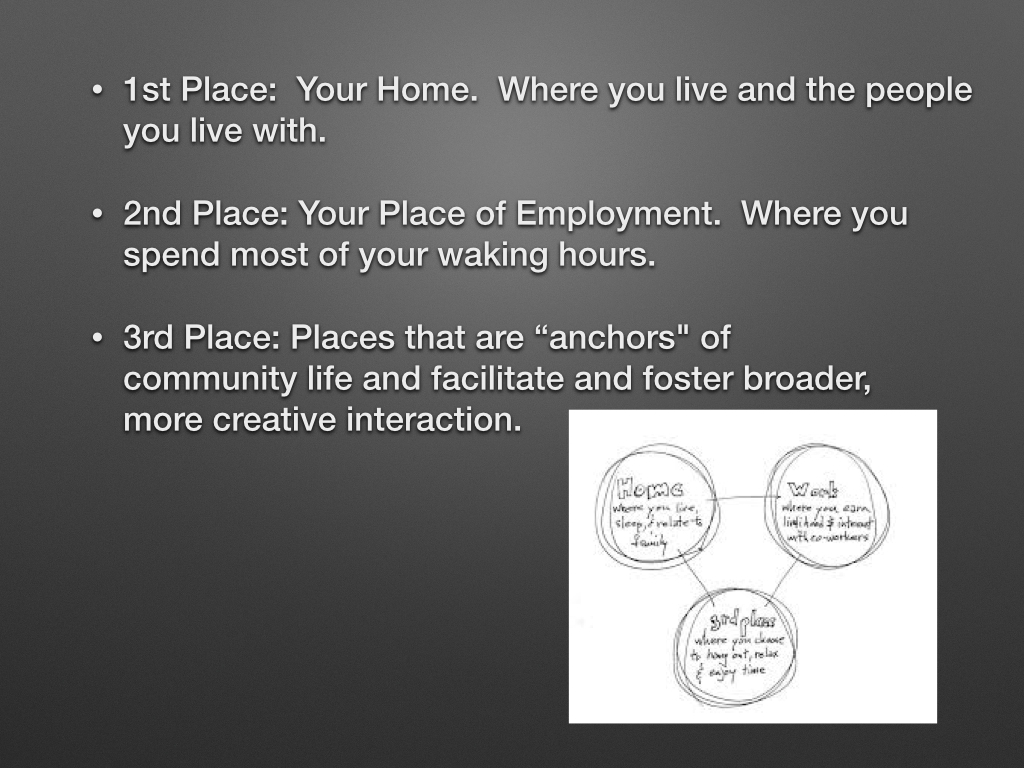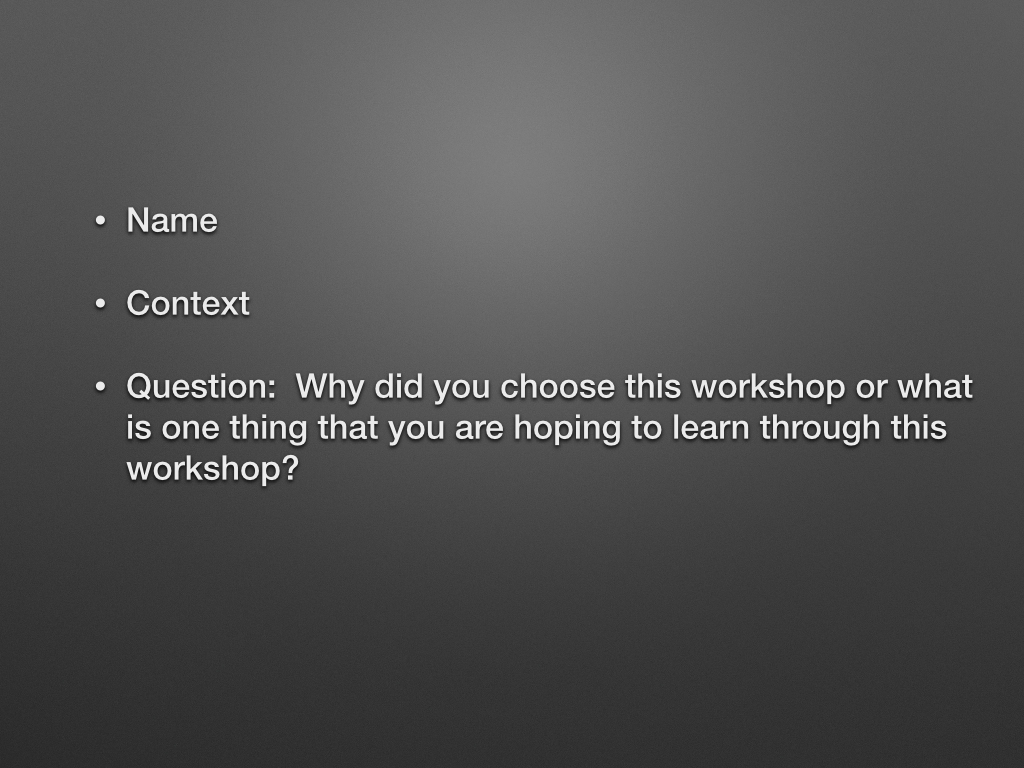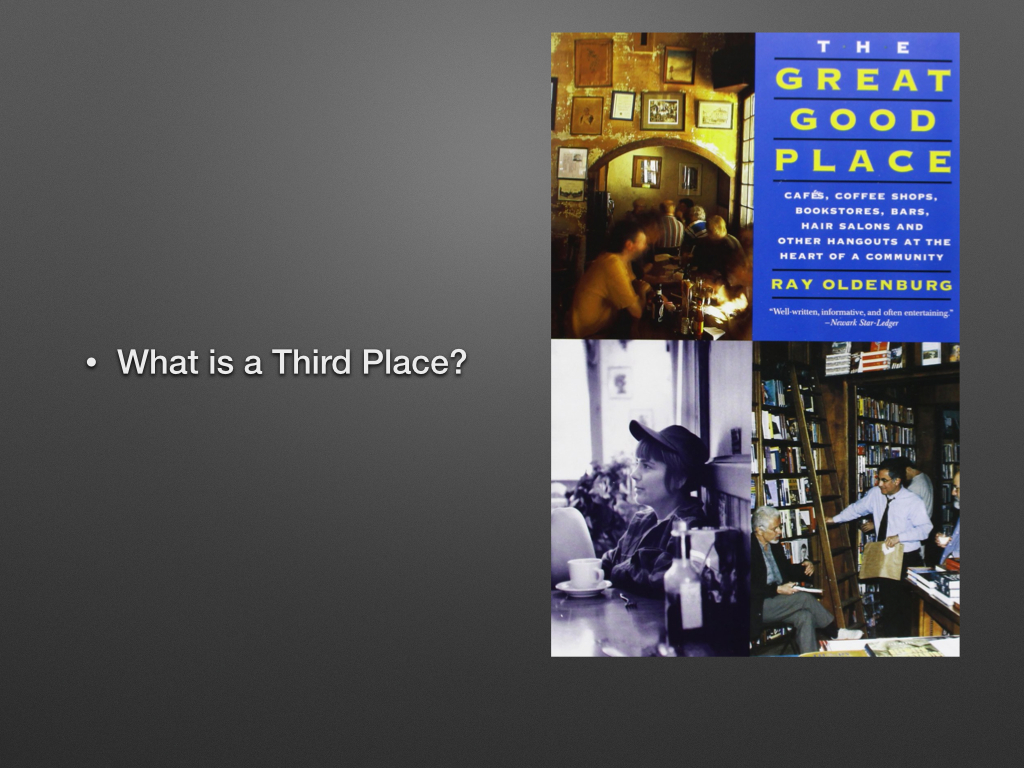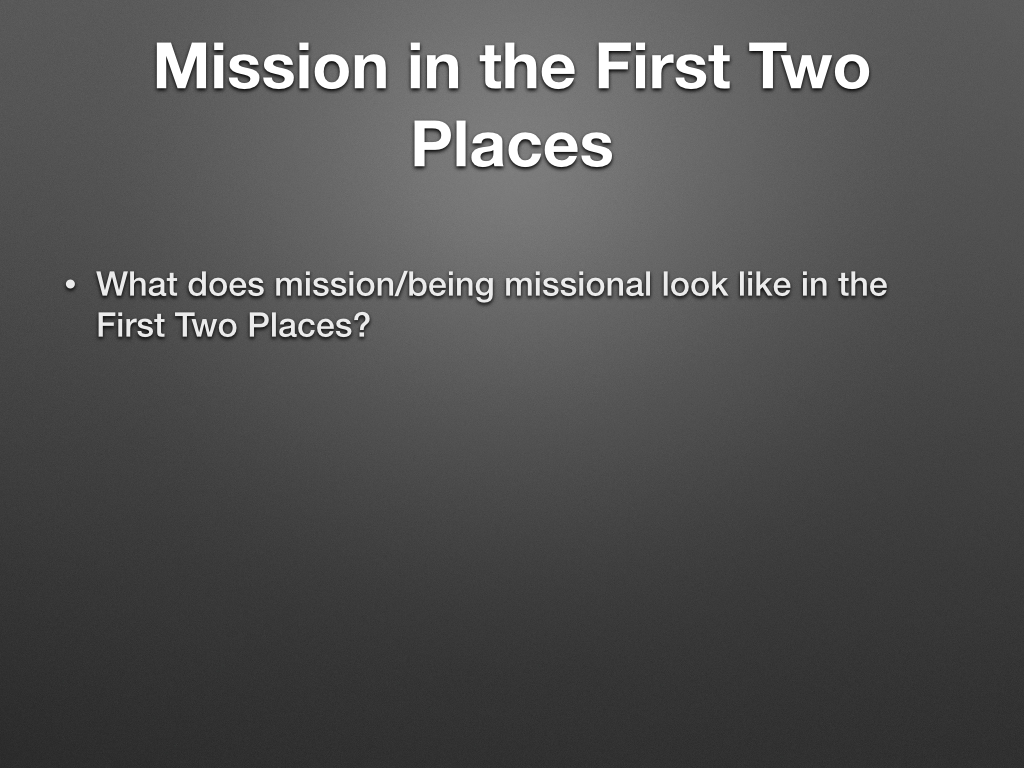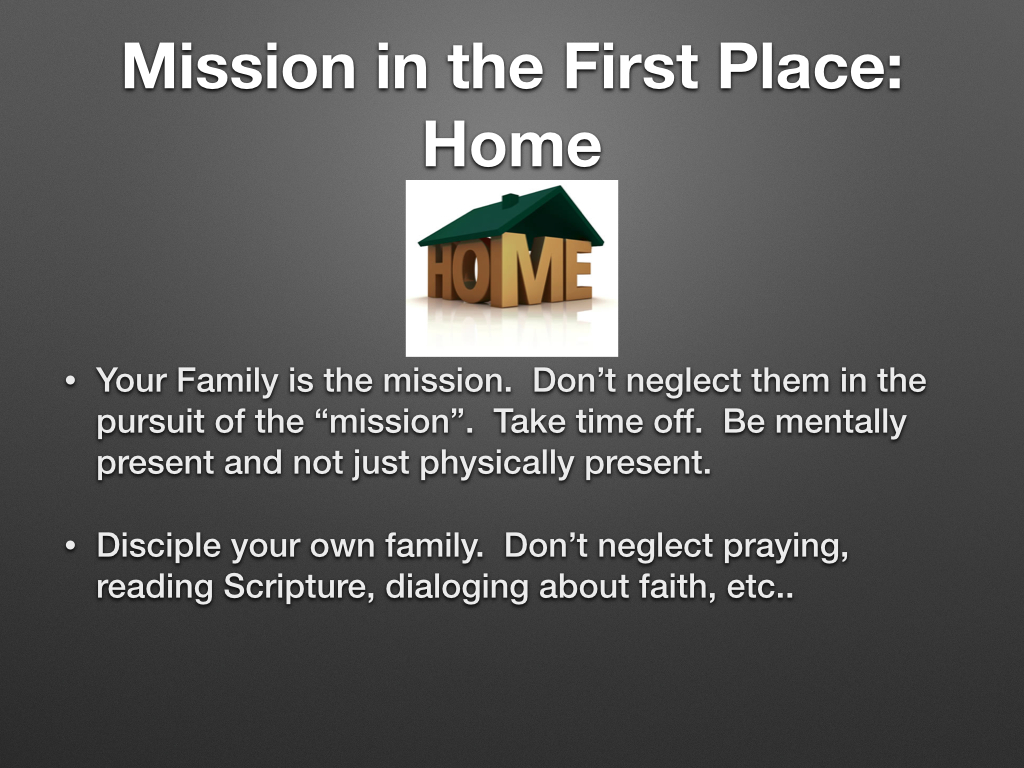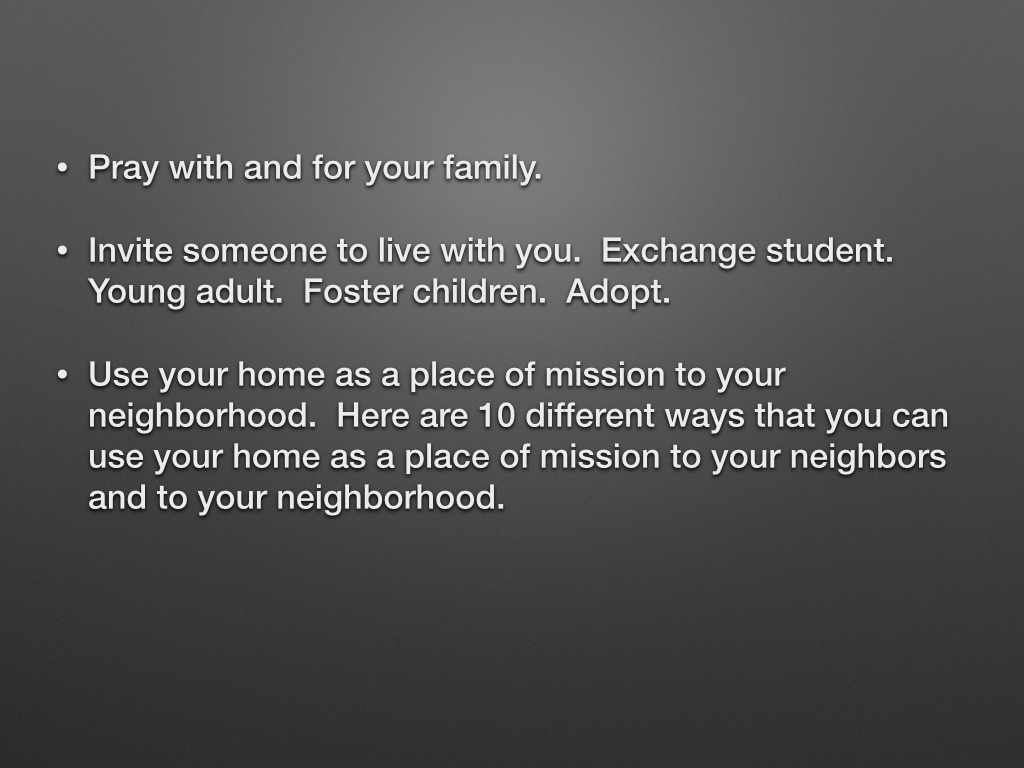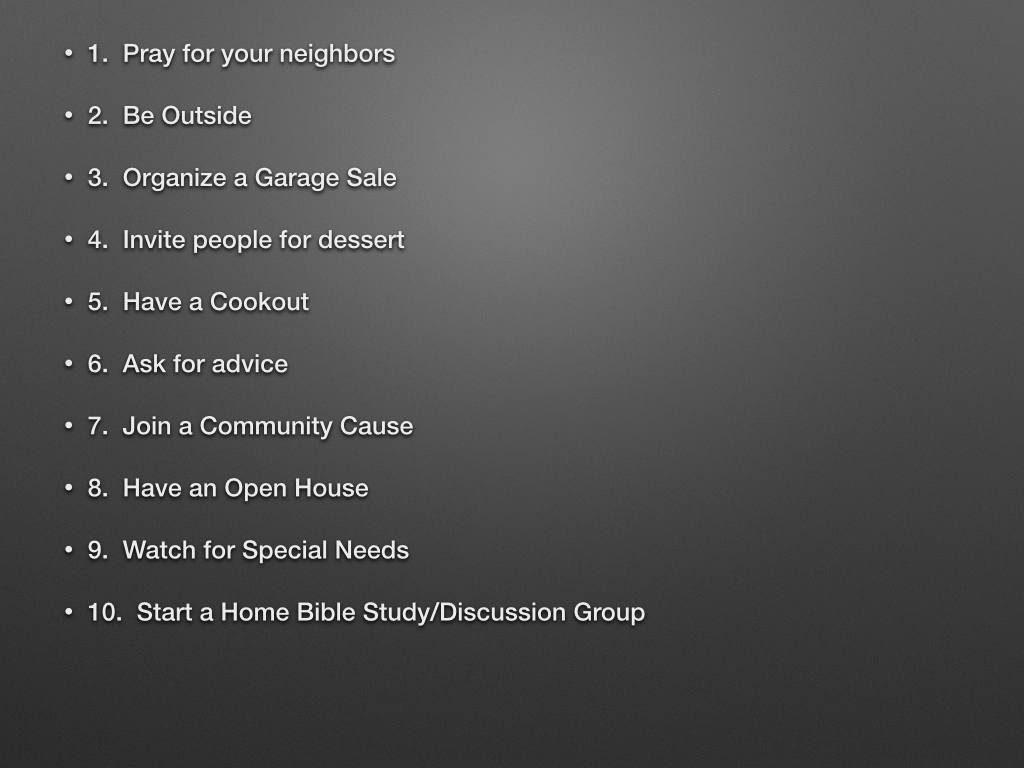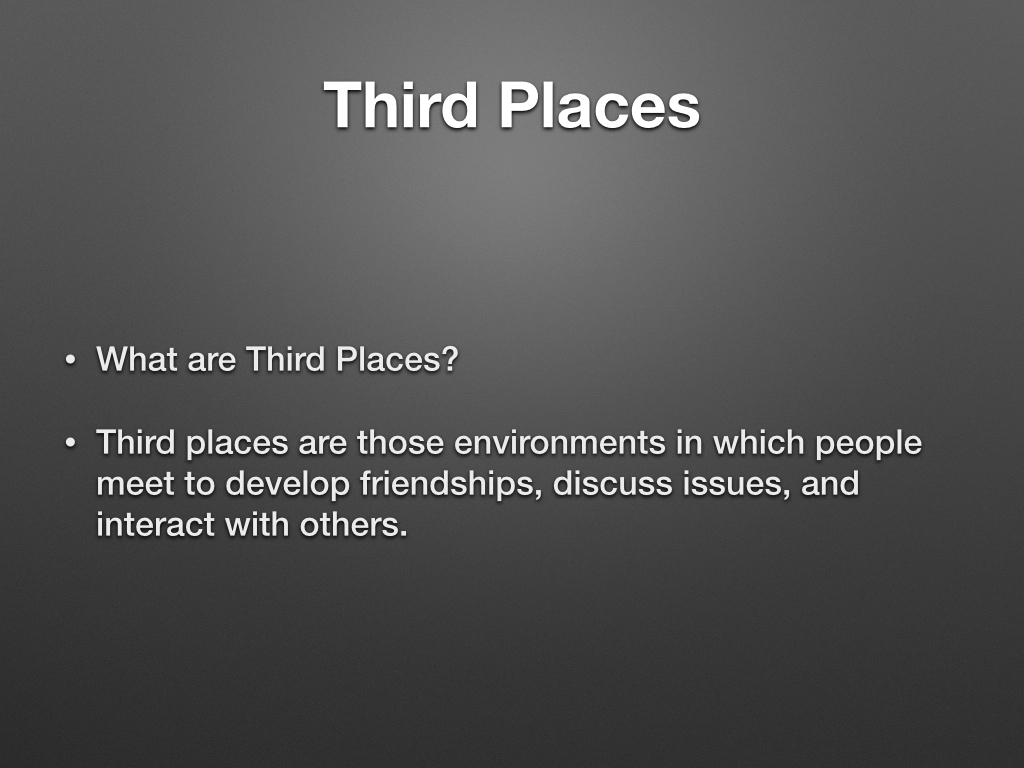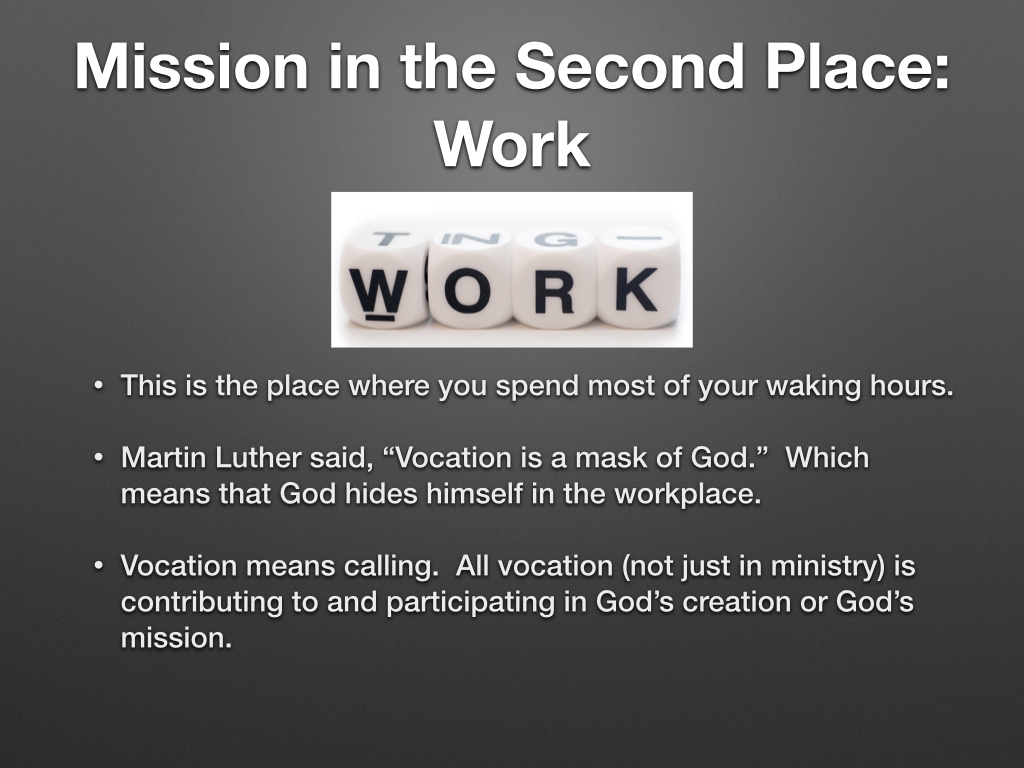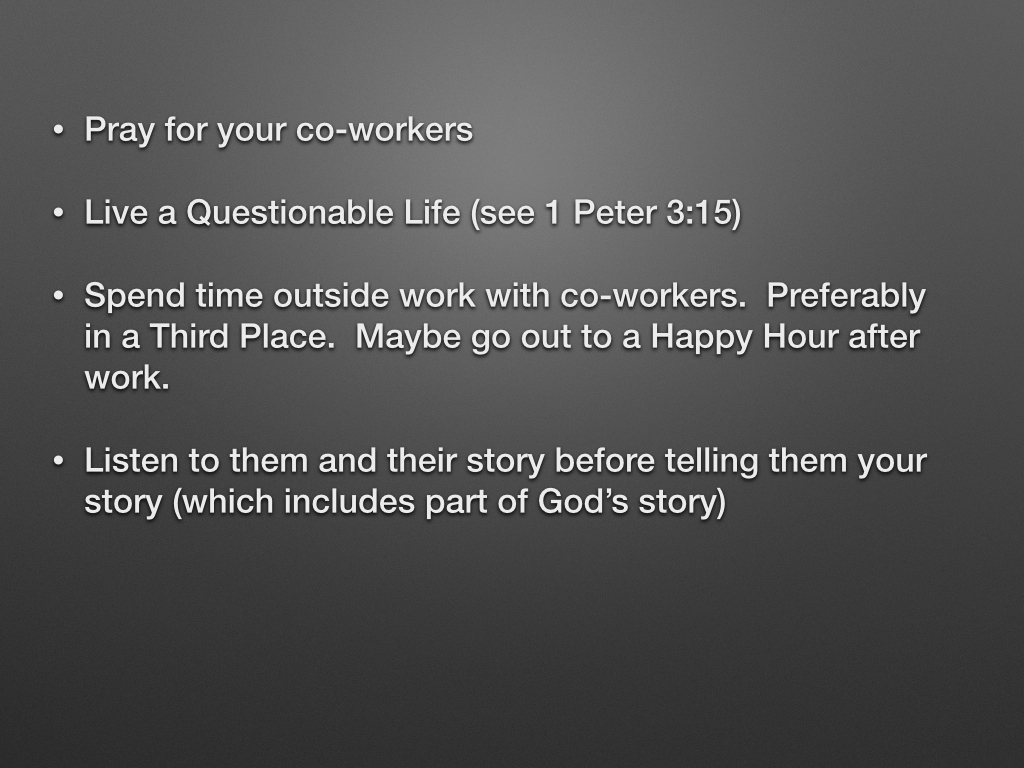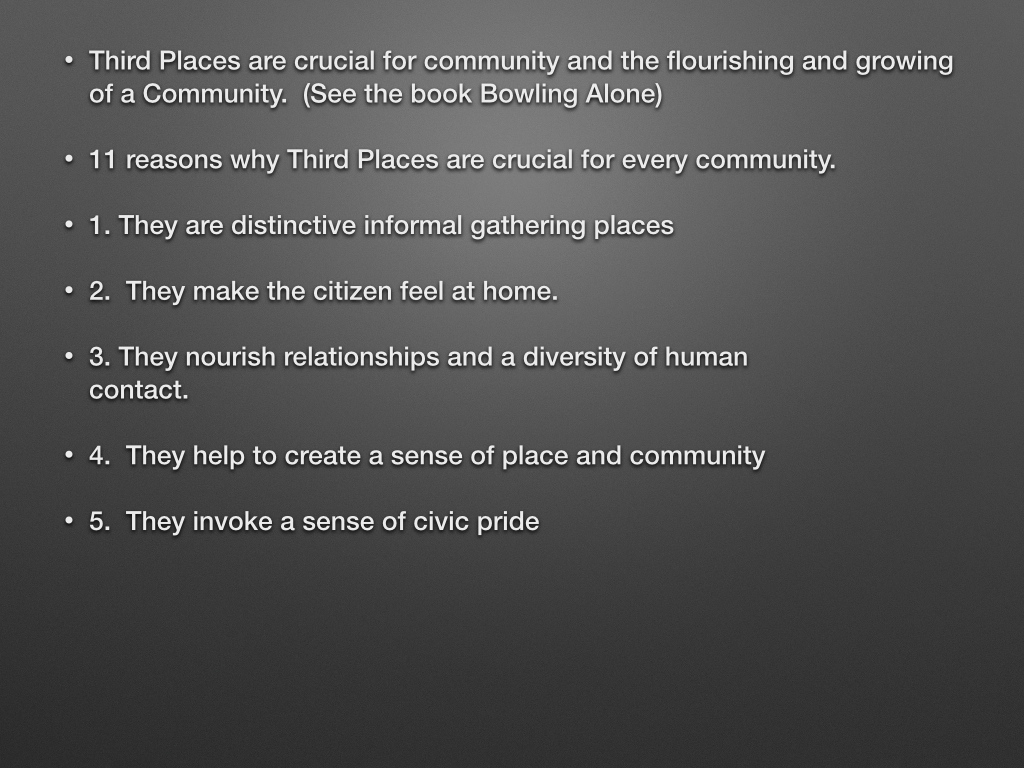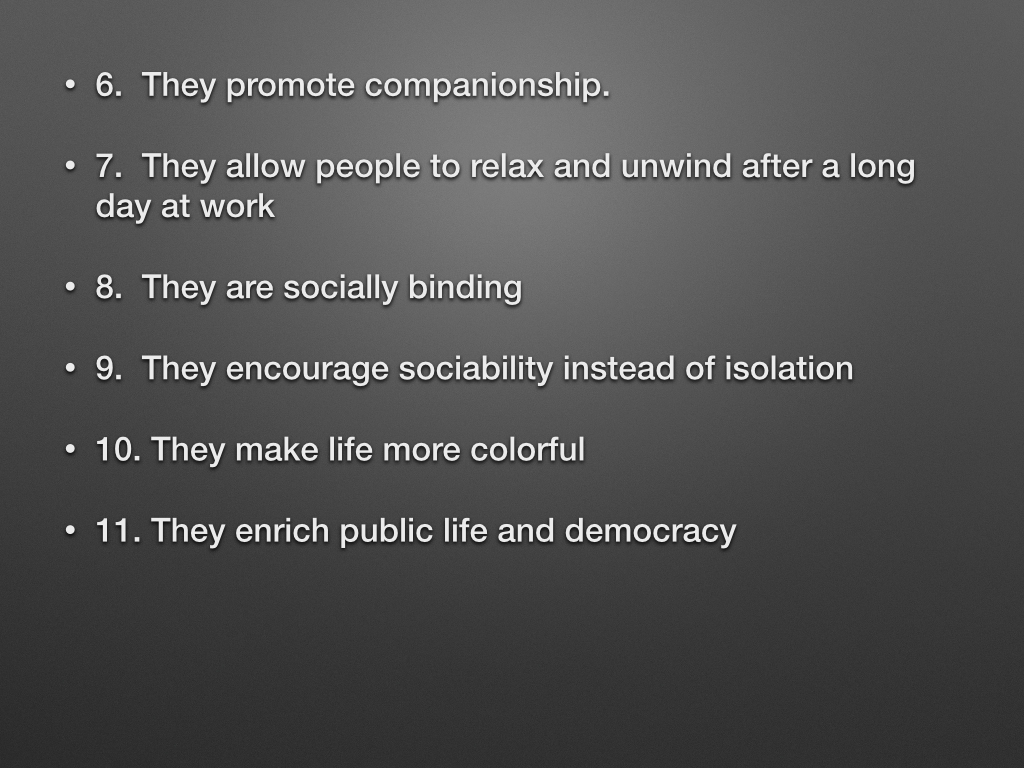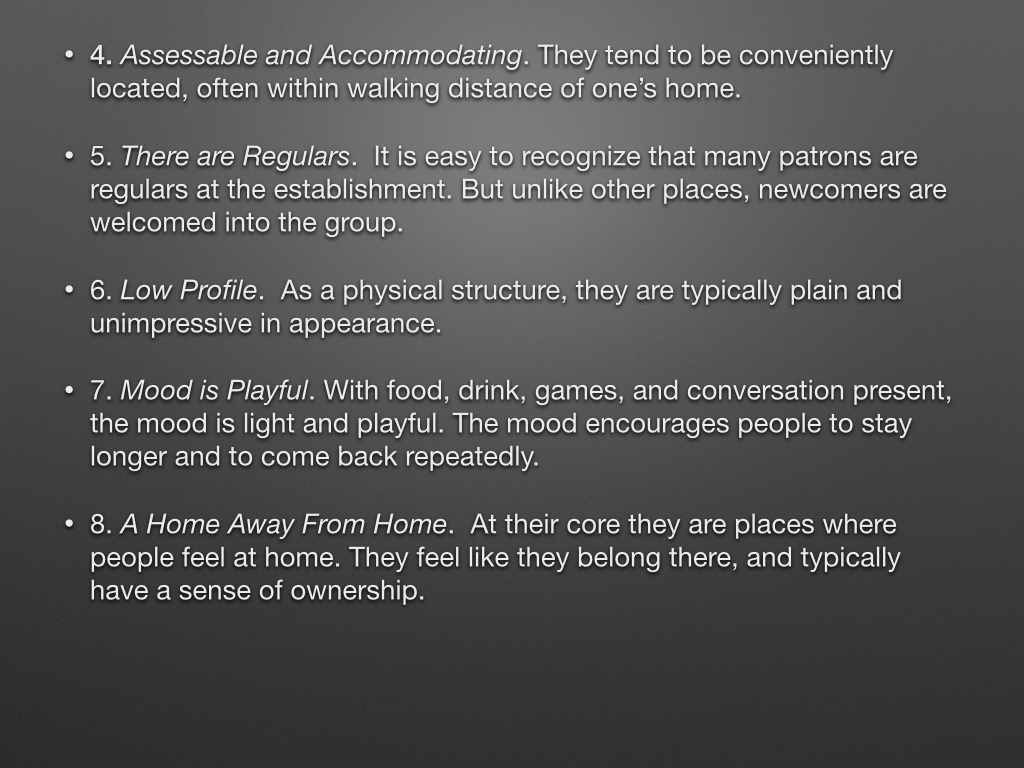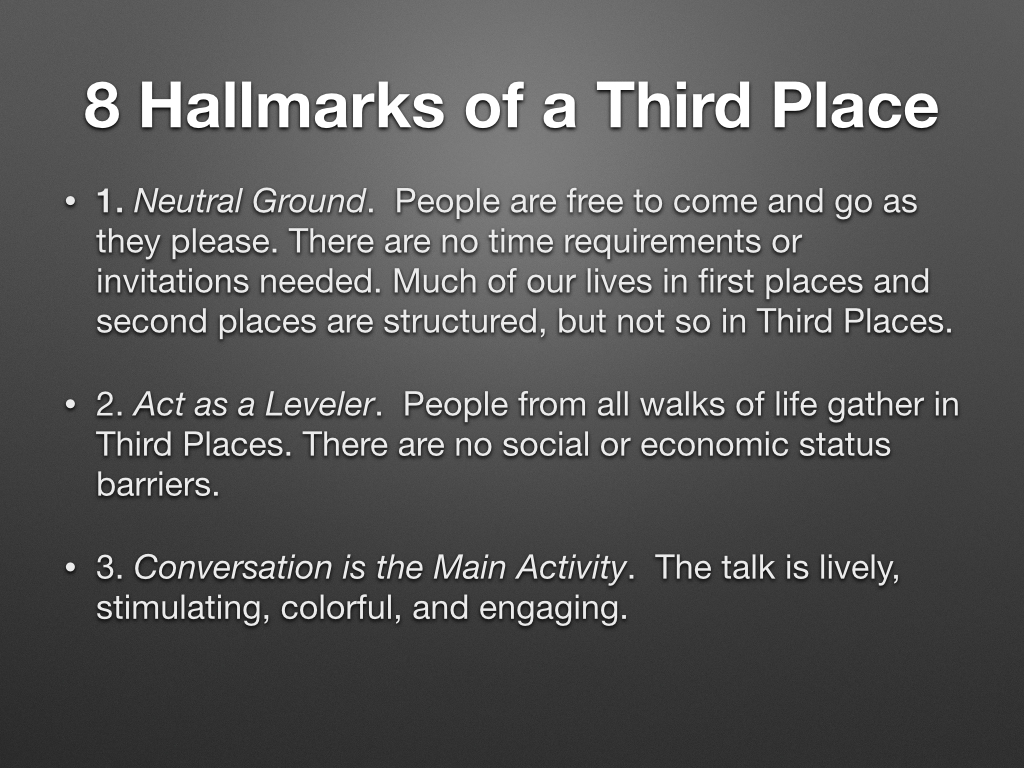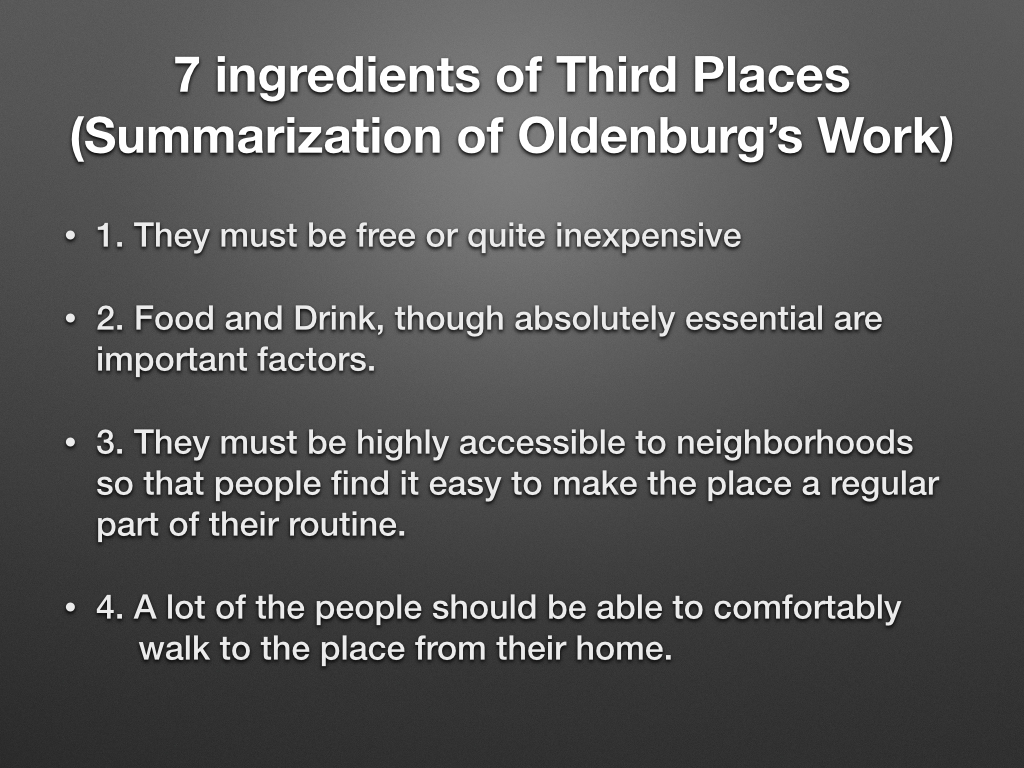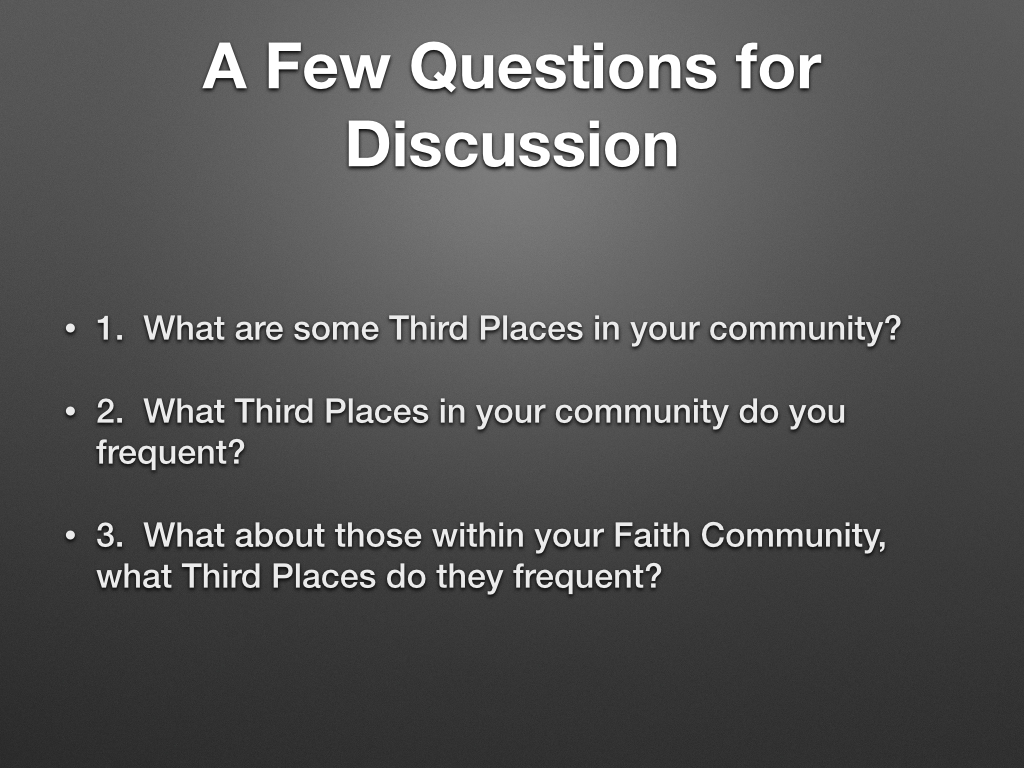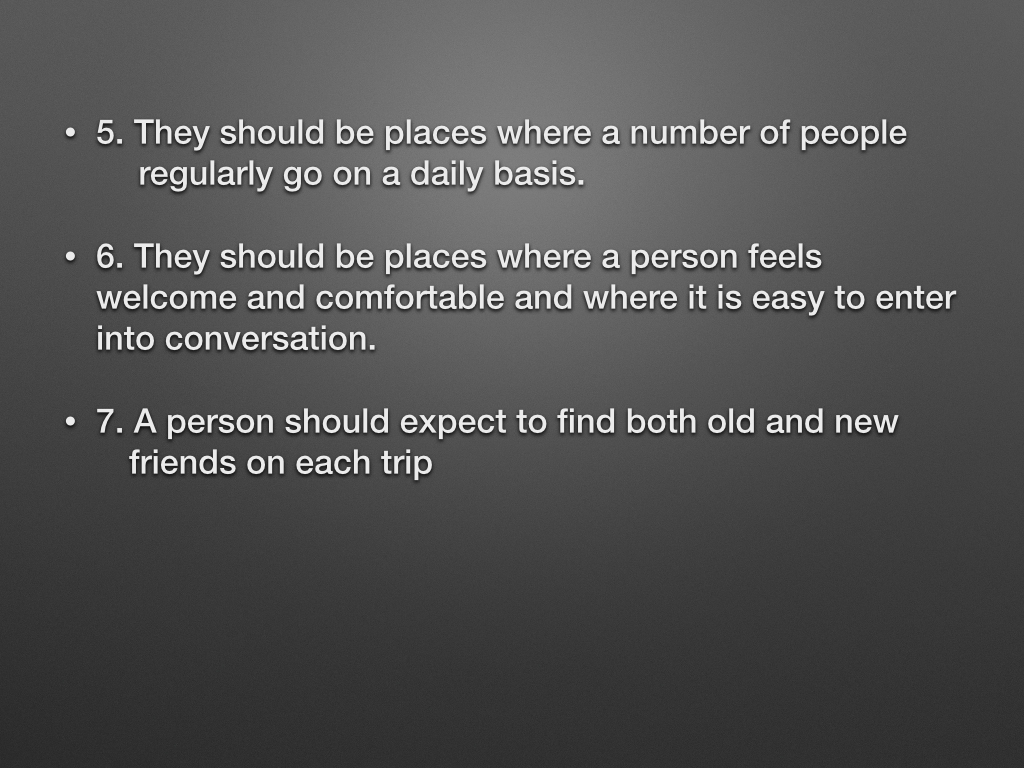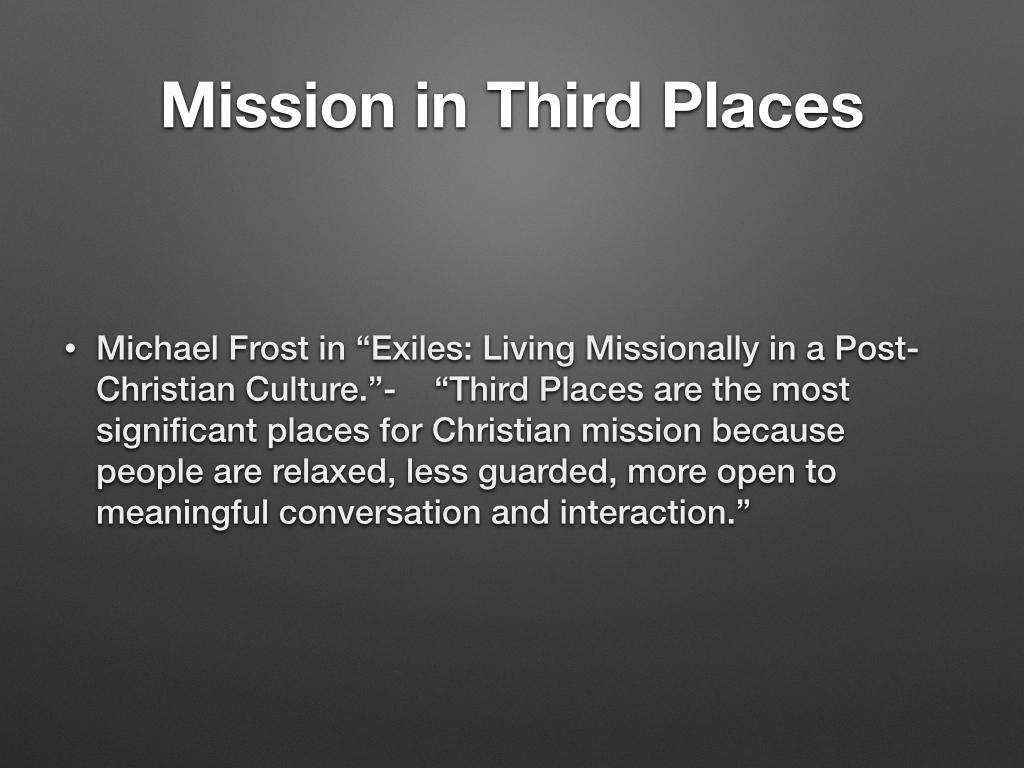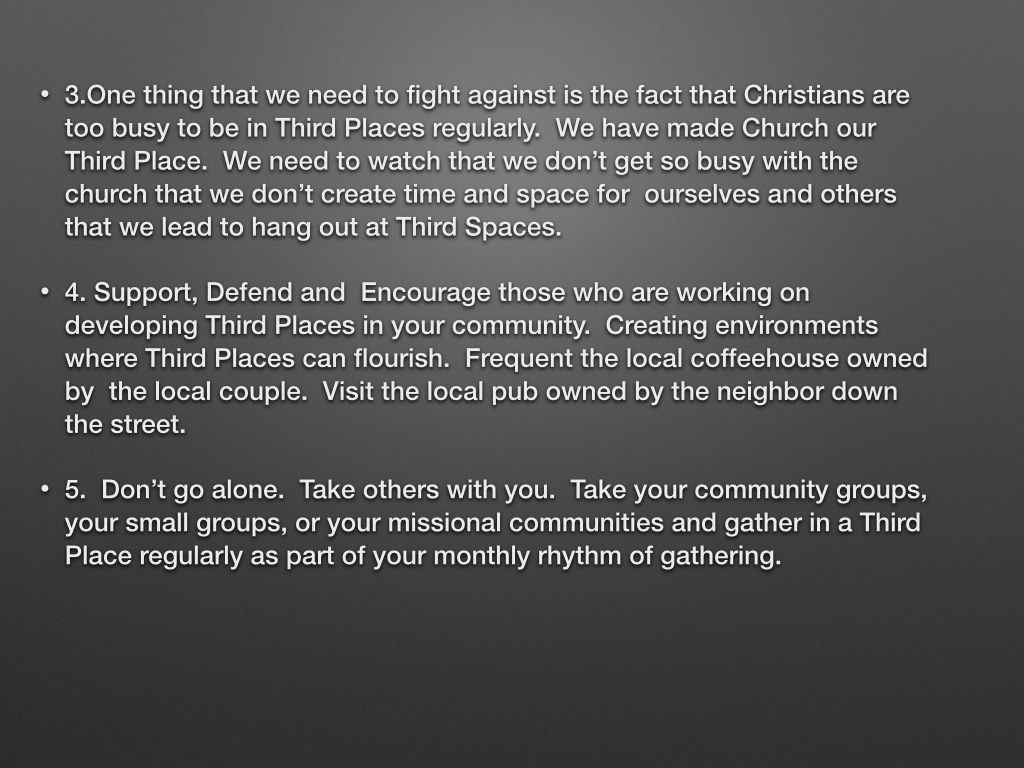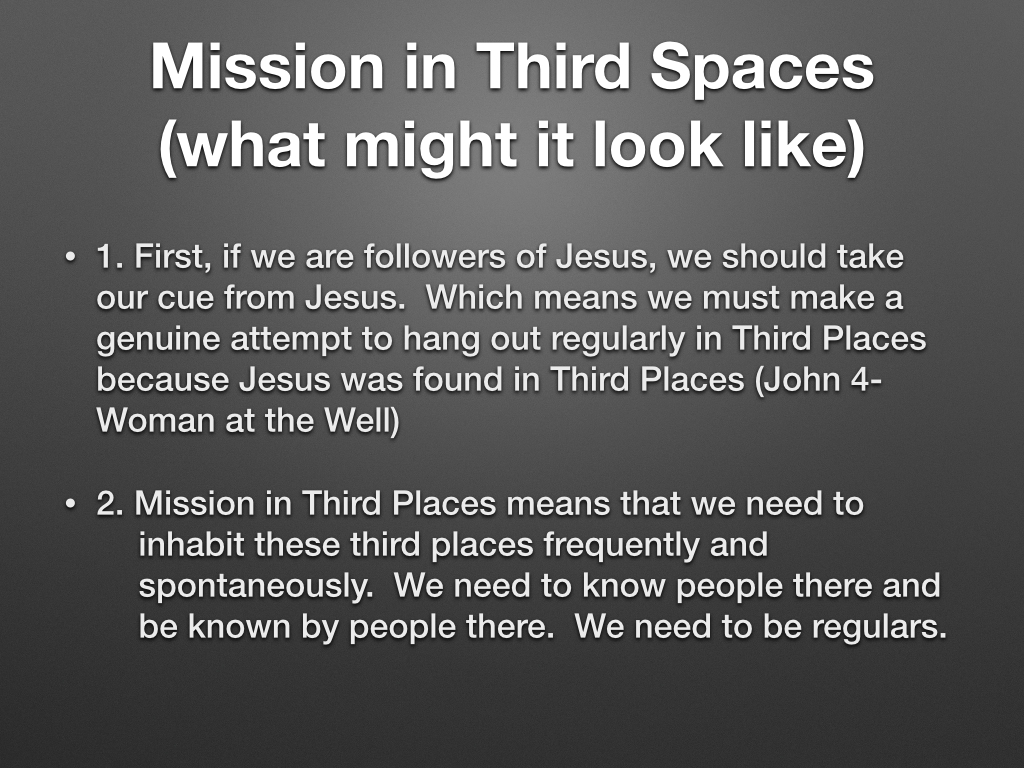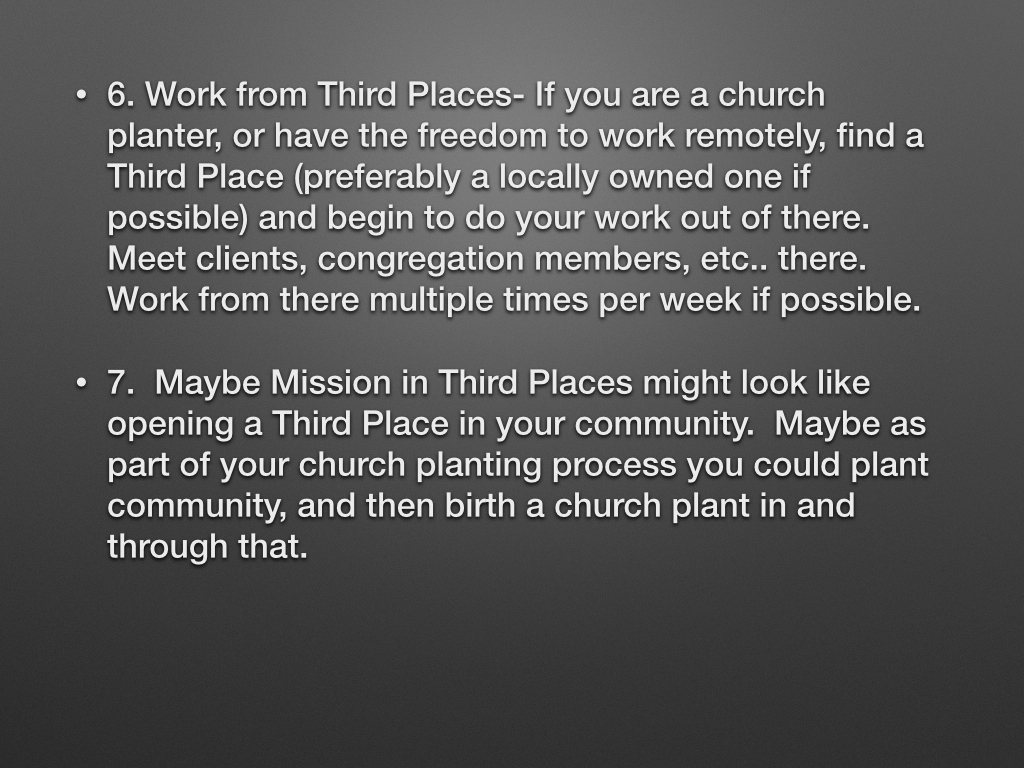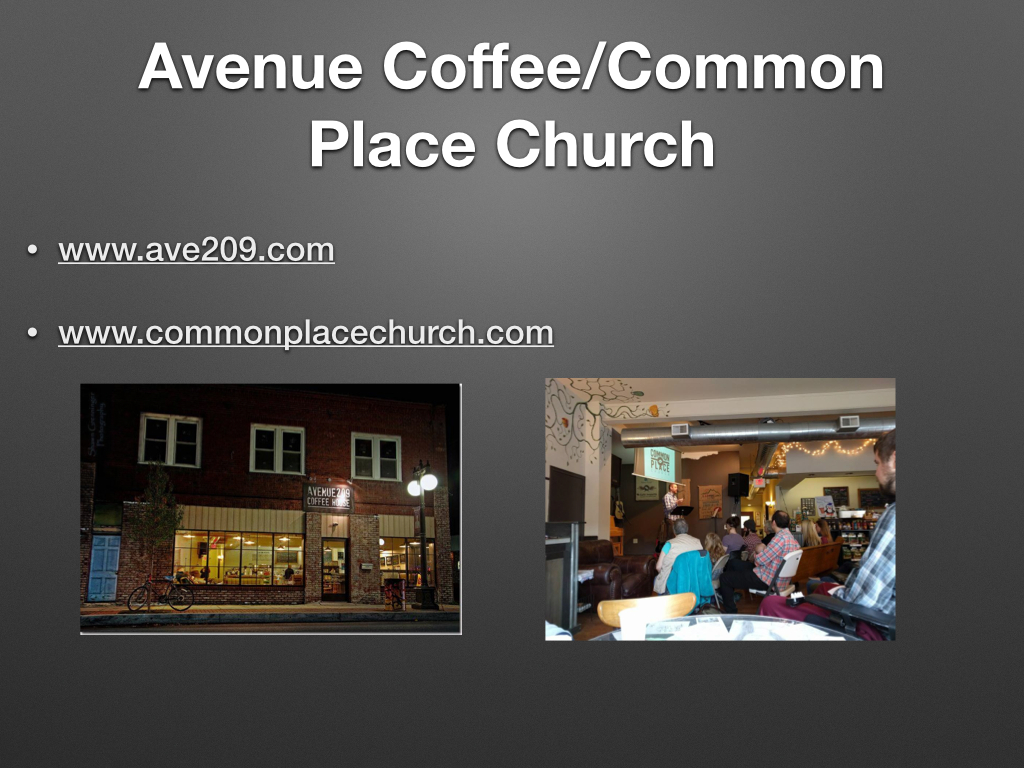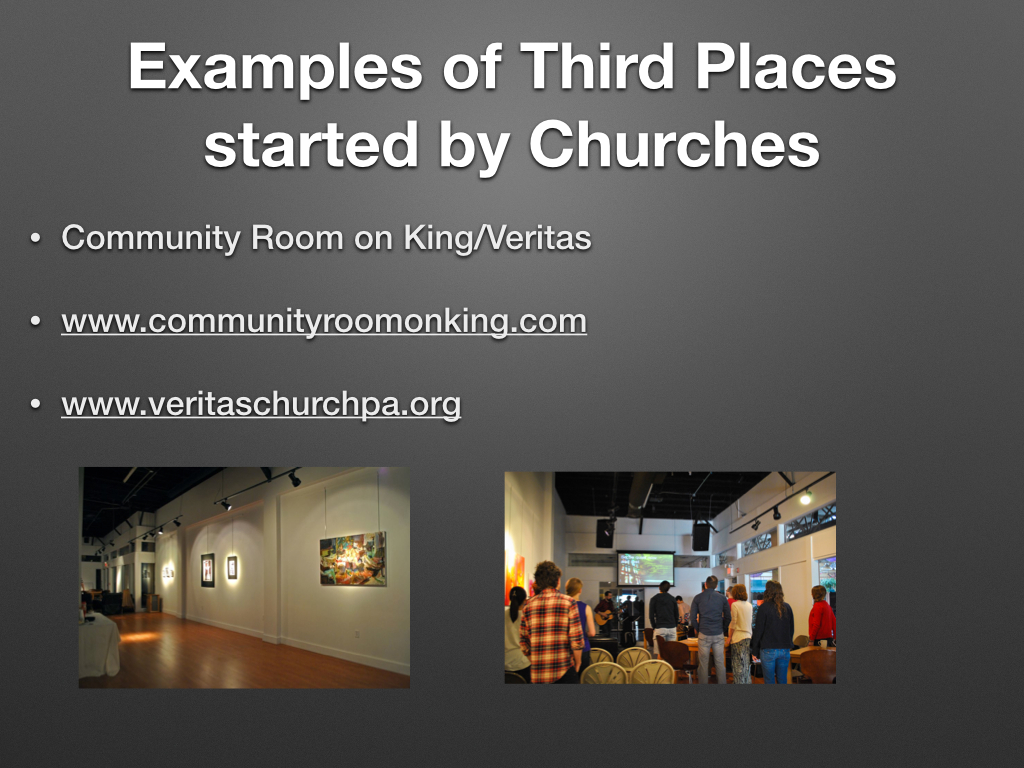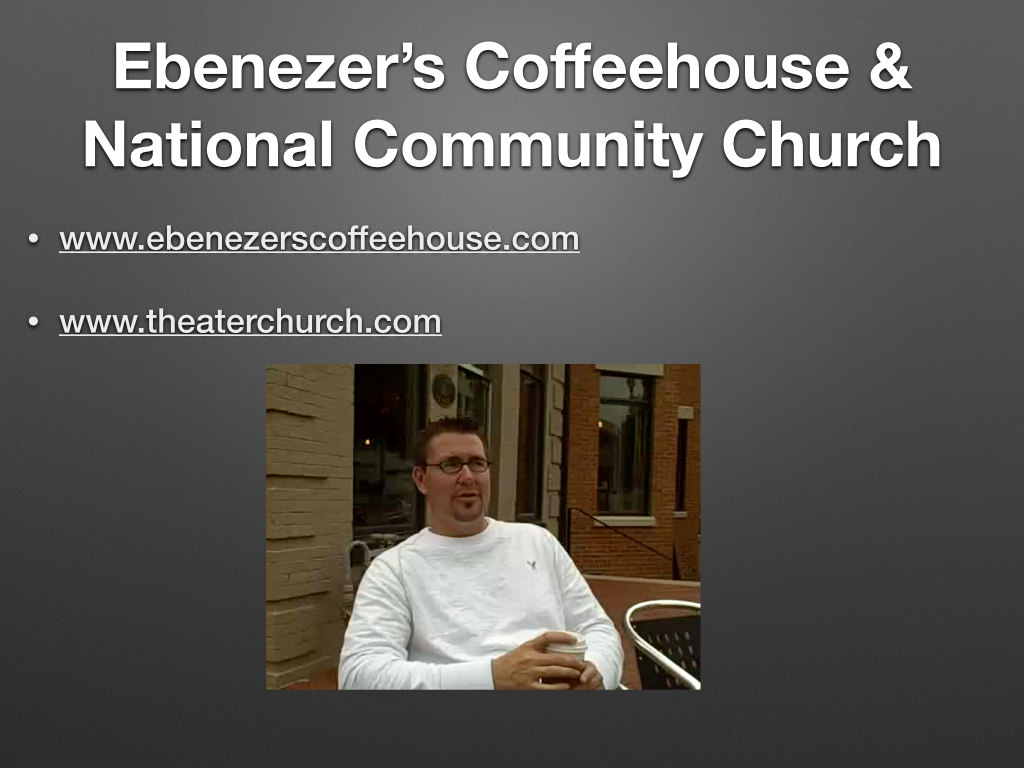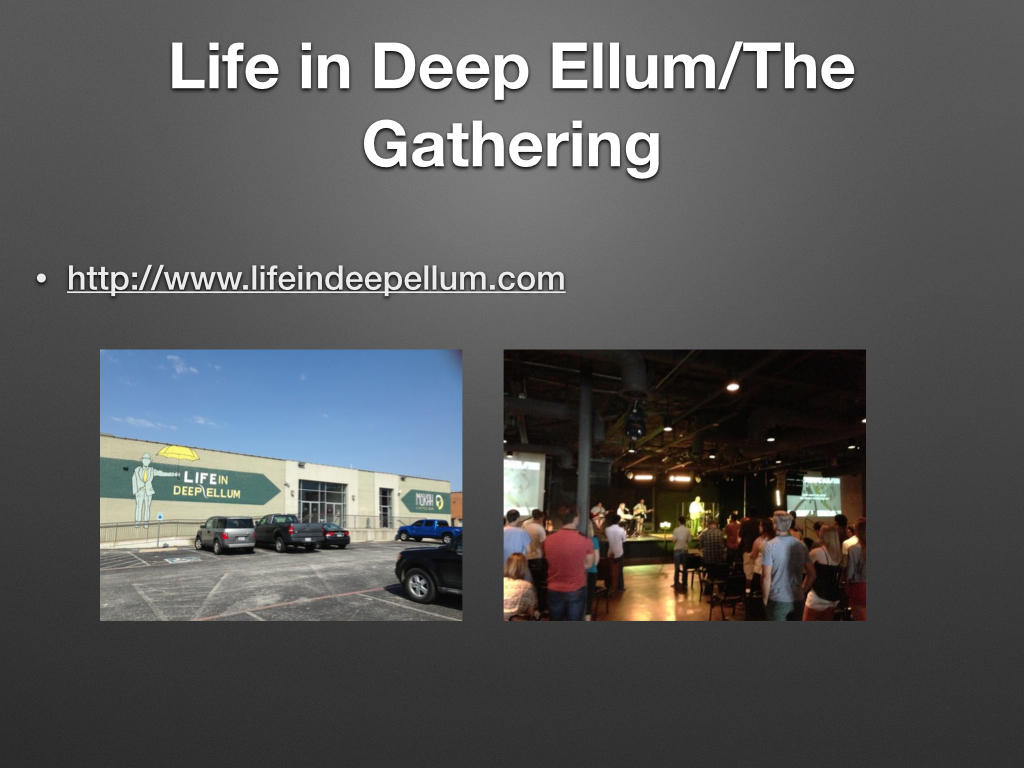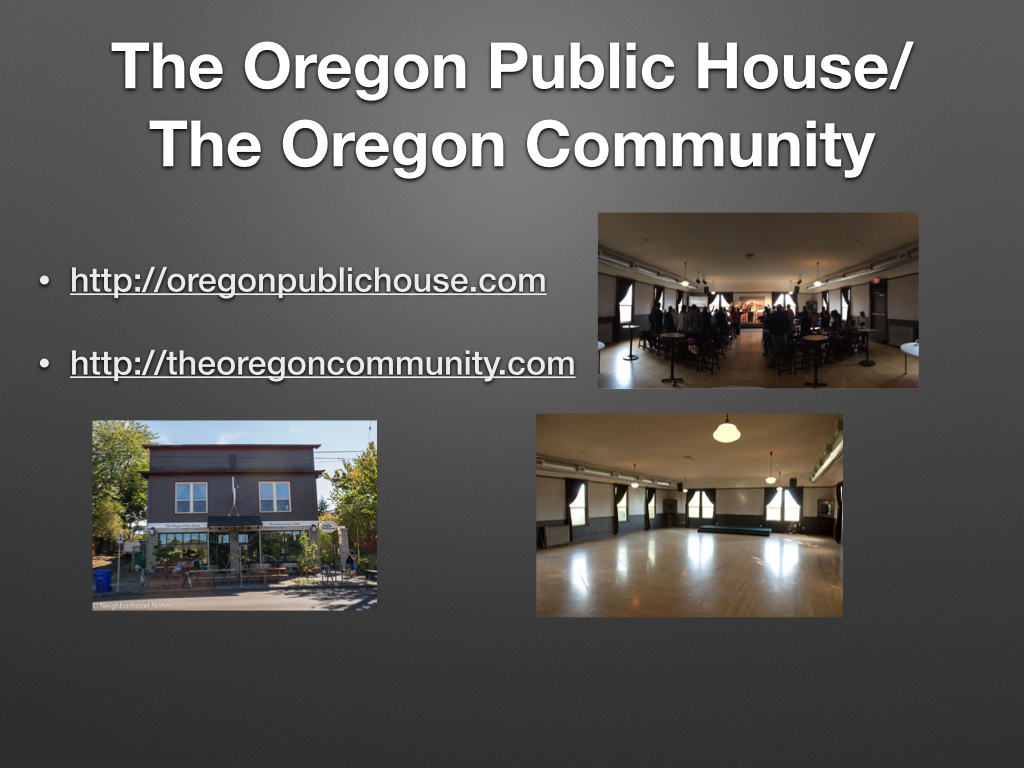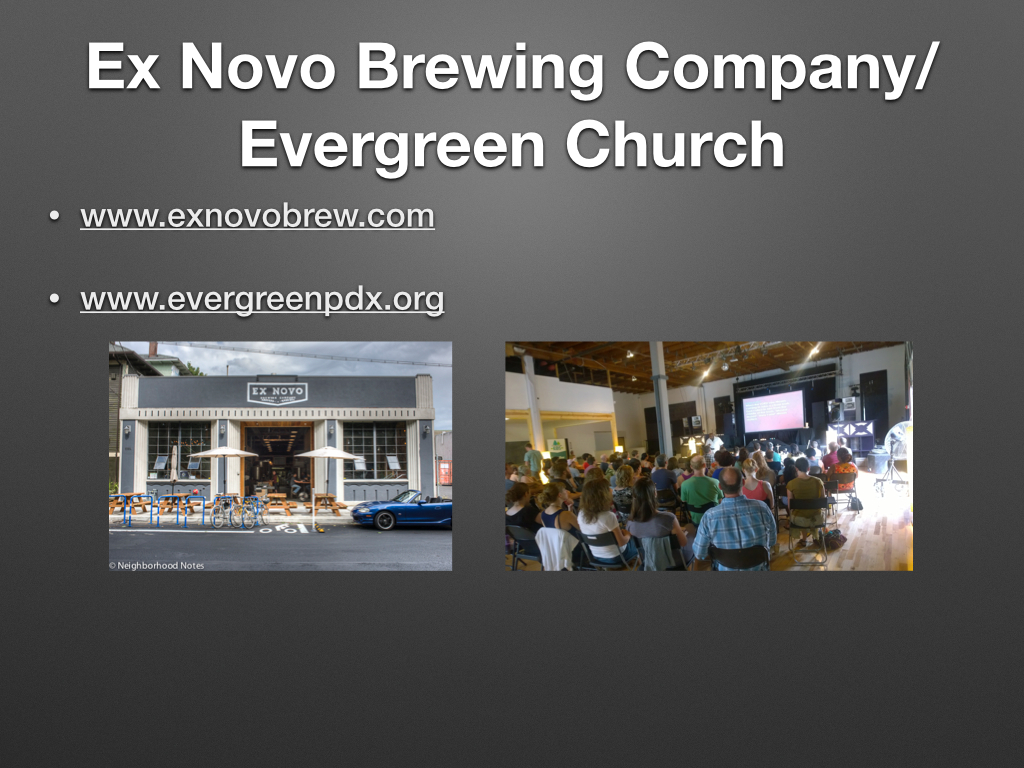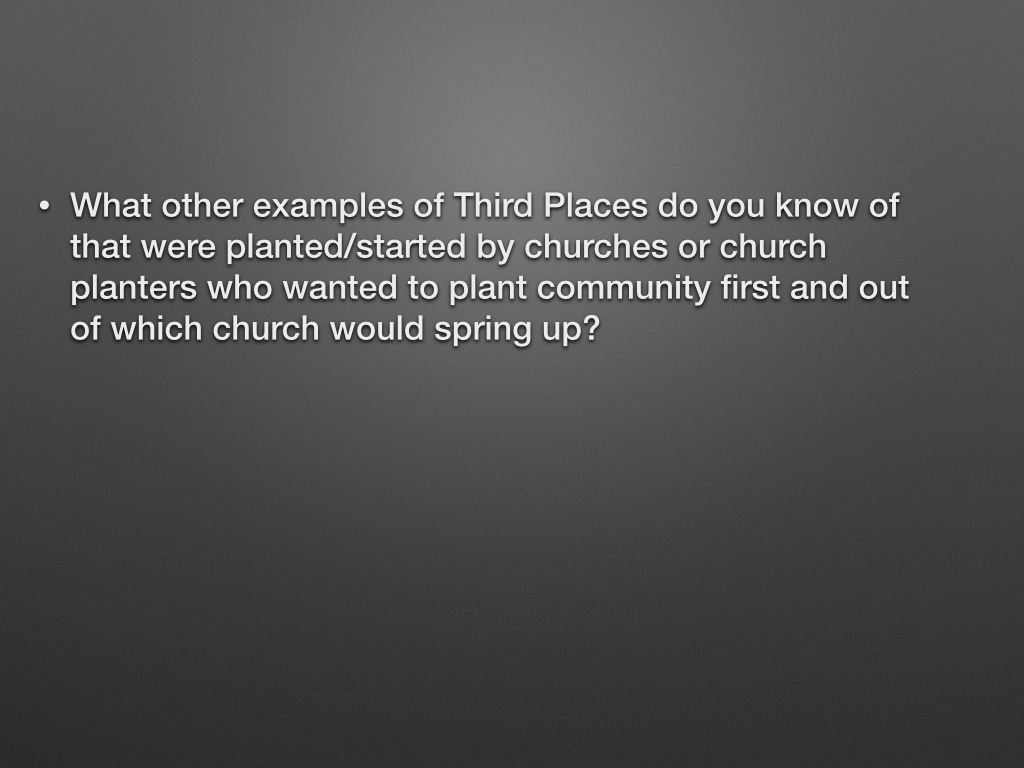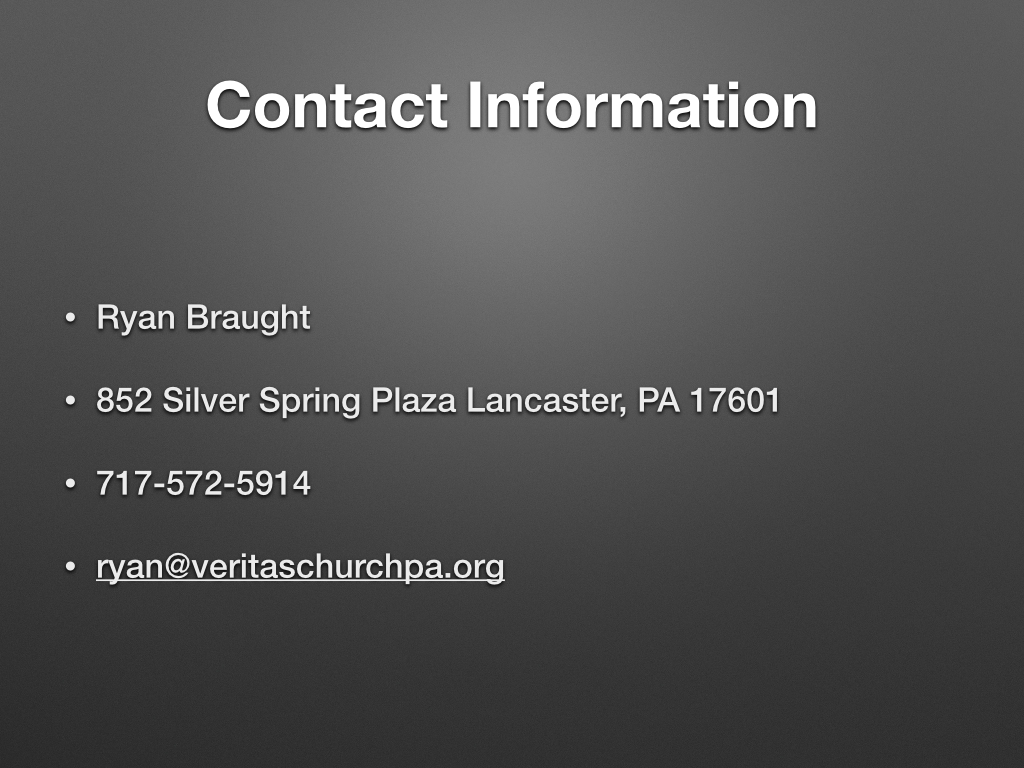As we wrap up our A Third Way to Follow Jesus series today, we are looking at one of my favorite themes of the last 12 weeks and using one of my favorite passages to do so.
Over the last 12 weeks we have covered substantial ground and some very important topics. Foundational themes and beliefs on what it truly means to follow after Jesus both as an individual but probably even more so communally.
Just a quick recap on what it means to be a Third Way Follower of Jesus (and a Third Way Faith Community). Being a Third way follower of Jesus and being a part of a third way faith community means having a high view of the Bible, emphasizing the New Testament, seeing Jesus as central to all else, the necessity of a believer’s church, the all out importance of discipleship, an insistence that this is no place in church for division based on class, race, socioeconomic status, etc…, that church is a covenant community, that we are to be separate from the “world”, visibly counter cultural, living out Shalom in the world, and the need for faith communities and followers of Jesus to be servants.
Today, we cover our last theme, that of church as missionary church. To be a SENT church. So let me ask you to share an image, a word, a simple brief thought when you hear the word missionary.
All of us have some kind of base reaction to the word Missionary. It might be a good reaction or a bad reaction. But we all have them. And as a church we need to recover what it truly means to be a missionary church. To begin to see not only ourselves as individuals but even more importantly to see this community, the Veritas community as a SENT community, sent into our world as missionaries who are about living out, and pointing others to the rule and reign of Jesus. As the British Missionary, Missiologist and Theologian Lesslie Newbigin said, “The church lives in the midst of history as a sign, instrument and foretaste of the reign of God.” We need to begin to think of the church as a Movie Trailer for the Kingdom.
To look at this idea of the church as a missionary, let’s turn to John 20:19-23 and see what it can say to us gathered together here as the Veritas community about being missional in our context
John 20:19-23 says, “On the evening of that first day of the week, when the disciples were together, with the doors locked for fear of the Jewish leaders, Jesus came and stood among them and said, “Peace be with you!” After he said this, he showed them his hands and side. The disciples were overjoyed when they saw the Lord. Again Jesus said, “Peace be with you! As the Father has sent me,I am sending you.” And with that he breathed on them and said, “Receive the Holy Spirit. If you forgive anyone’s sins, their sins are forgiven; if you do not forgive them, they are not forgiven.”
The first thing we notice in this, the third resurrection appearance of Jesus to various disciples is the simple phrase “on the evening of the first day of the week.” John is making a connoting point with his hearers. The connection between creation and new creation. The connection between Genesis 1 and 2 and John 20. The first day of creation and the first day of new creation (resurrection). The story of Adam and Eve and the story of the New Adam, Jesus. John also point back to Genesis in this story when we read these words, “And with that he breathed on them and said, “Receive the Holy Spirit.” In Genesis 1 we see God breathing his Spirit into Adam and bringing him to life. In John 20 we see Jesus breathing new life and new creation into those gathered fearful disciples. The church is called to the work of new creation. To be sent into the world as missionaries to be about the work that Jesus started in his life, death, and most importantly, his resurrection. The work of new creation. Jesus rose again to set the world right and he allows us to partner with him in seeing that this world is set right again. Or as the Church of the Brethren tag line goes, “Continuing the work of Jesus: Peacefully, Simply, Together.”
So the disciples are gathered together on the first day of the week with the doors locked, because they feared that they were next. That the Jewish religious leaders were now coming for them, and they would end up experiencing the same thing that Jesus experienced- dying on a cross. To say that mission wasn’t possible is an understatement. The doors weren’t even open to Jesus. Jesus had to burst in on them through closed doors, not open ones. You see before a community of disciples will ever break out of their closed rooms, closed sanctuaries, and closed church buildings, or at least open doors to others to come in- the church must have open doors to Jesus. Too often we live fearfully behind locked doors just like the disciples. What are the locked doors that are keeping you from engaging in the mission of Jesus and His Kingdom? What fears do you have that hold you back from stepping out into the world to be a missionary for Jesus and the moving forward of his Kingdom?
Whatever lock doors that you hide behind. Whatever fears keep you from being engaged in the mission of Jesus, His Kingdom, and His rule and reign, Jesus has a word for you. The same words that he spoke to the disciples in that room on that first night of the week. He says “Peace be with you.”
Jesus comes and stands in their midst, through locked doors and all. He comes into their midst not with words of condemnation about how they failed him in his hour of need. No he meets them with outstretched arms and words of Shalom on his lips. It is in this place of abject failure that Shalom comes to the disciples. And so maybe you feel like you have hidden behind locked doors. Maybe you have failed to partner with the resurrected Jesus in the work of new creation. Maybe you have lived a life of fear and being afraid of what God may be calling you to do, as you begin to engage in his mission in this world. Know that he has words of Shalom on his lips for you. But he calls us out of our fear, out from our locked doors, and into his mission where, according to 1 John 4:18, “There is no fear in love. But perfect love drives out fear.”
Jesus speaks words of shalom to his disciples, and then to prove to them that he is indeed Jesus, he shows them his hands and sides and then reiterates his words of shalom to them. They are blown away by the fact that Jesus, the one that they had seen crucified only 3 days before was standing in their midst. He had defeated death, evil, and hell by his death and resurrection. And he stands in their midst and calls them into his mission of new creation.
His words resound from that closed room, down through the centuries, and into our space this morning. His words, his challenge, his calling for those of us who would call ourselves followers of Jesus. He commissions and sends the disciples (and us) with these words, “As the Father has sent me,I am sending you.” And with that he breathed on them and said, “Receive the Holy Spirit.” Third way followers of Jesus believe that this call in John 20:21 from Jesus means that the church is commissioned to go into the world and all society, and to make disciples of all people, baptizing them, and teaching them to observe the commandments. The evangelistic imperative that Jesus sends us out into the world is given to all who believe.
In this commissioning we see the Trinitarian call to mission. All 3 persons of the Trinity are present in that locked room. We see God the Father sending Jesus the Son. We see God the Father and God the Son sending the Holy Spirit. And we see God the Father, God the Son, and God the Holy Spirit sending the church (those early disciples). This is another example of God the missionary God sending the missionary church into the world. To live out the Missio Dei (the Mission of God) in the world. God’s church doesn’t have a mission in the world. God’s Mission in the world has a church, and the early disciples were part of the Missio Dei, and we gathered in this room today are also part of the Missio Dei. The church of Jesus Christ is called to be committed communities of discipleship and mission. To adopt a missionary stance to the communities in which we live.
One of the problems that we have in the United States is the wrongly held belief that we send missionaries elsewhere, and to other countries. That we don’t need missionaries here in the US. The church has lost the idea and concept that we are a missionary church. We have lost the idea that when we walk out those doors we are entering into the mission field. That when you enter your neighborhood, that is a mission field. That when you get up and go to work in the morning, that you are a missionary in your workplace. That when you go home to your family, that also is a mission field. Everywhere we go, we are in the midst of a mission field. And God has commissioned us to go into the world, to be a blessing, to share the good news ofJesus, His Kingdom and His rule and reign and to share Shalom and the work of new creation with the world.
But we aren’t living out the Missio Dei, the mission of God alone. Look at what happens after he verbally sends his disciples. The text says, “And with that he breathed on them and said, “Receive the Holy Spirit.” When we go out into the world to live out the Missio Dei, the Holy Spirit is with us. He is already working where we are going. He is working within us. And he is going with us. The disciples were gathered together in a locked room, fearful of the Jewish religious leaders. Mission wasn’t even a thought or a possibility. In a real way the church was still 50 days away. But when Jesus showed up in their midst, in the middle of the locked room, everything changed. When he breathed on them and said “Receive the Holy Spirit” fear gave way to faith. The locked doors flung open. Mission was now not just a thought or a dream, but a commissioned and equipped reality. They had the power to live out the Kingdom of God in the world. They had the Holy Spirit to help them live out the Missio Dei. You see the point and purpose of receiving the Holy Spirit is not 1. a spiritual experience. or 2. Some type of set apart, better than others, more spiritual then others. No, the point of receiving the Holy Spirit is so that disciples of Jesus can do in and for the world what Jesus had been doing in Israel. To speak and live Shalom in the world instead of condemnation. To continue the work of New Creation that Jesus started through his resurrection. To live out the Missio Dei in our neighborhoods, in our schools, in our places of work, in our homes, in our community, and in the wider world. To be sent into the world, as ambassadors of reconciliation, as we read in 2 Corinthians 5. Partnering with Jesus in the work of Shalom. Working for Shalom between God and people. Working for Shalom between each other (as followers of Jesus). Working for Shalom between people. Working for Shalom between humanity and the creation itself. Working for Shalom in the wider world, between people groups, nations, etc.. Being sent as Shalom-makers in our world. That is what we are sent for. That is what God the Father, God the Son, and God the Holy Spirit commissioned us for. You and I are sent. This church is sent. The church of Jesus Christ is sent.
So let’s talk about what it looks like to live out a sent reality. Let’s took at the Scripture and see what stands out to us and what questions it raises in our minds. Let’s talk about the locked doors and fears that we have regarding the missio dei and being sent into the world. Let’s talk about who God may be sending you and our community to. And let’s talk about what God is saying to you and us and what we should do about it.



